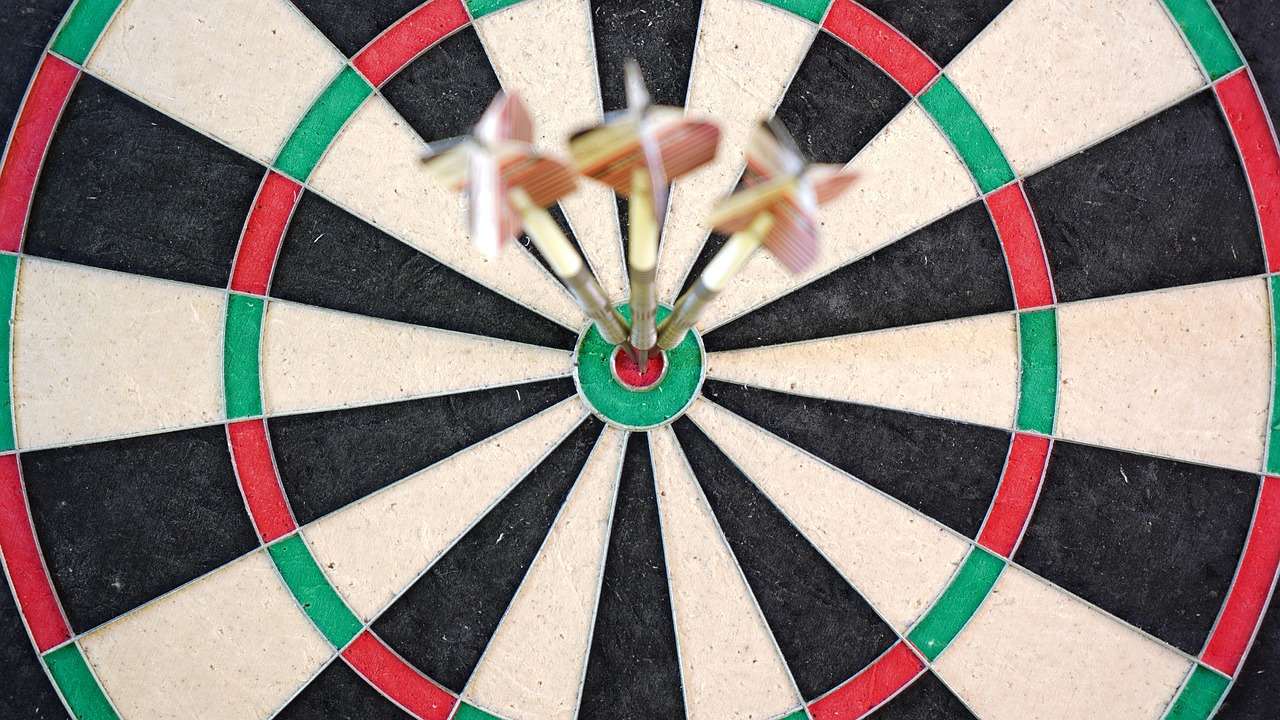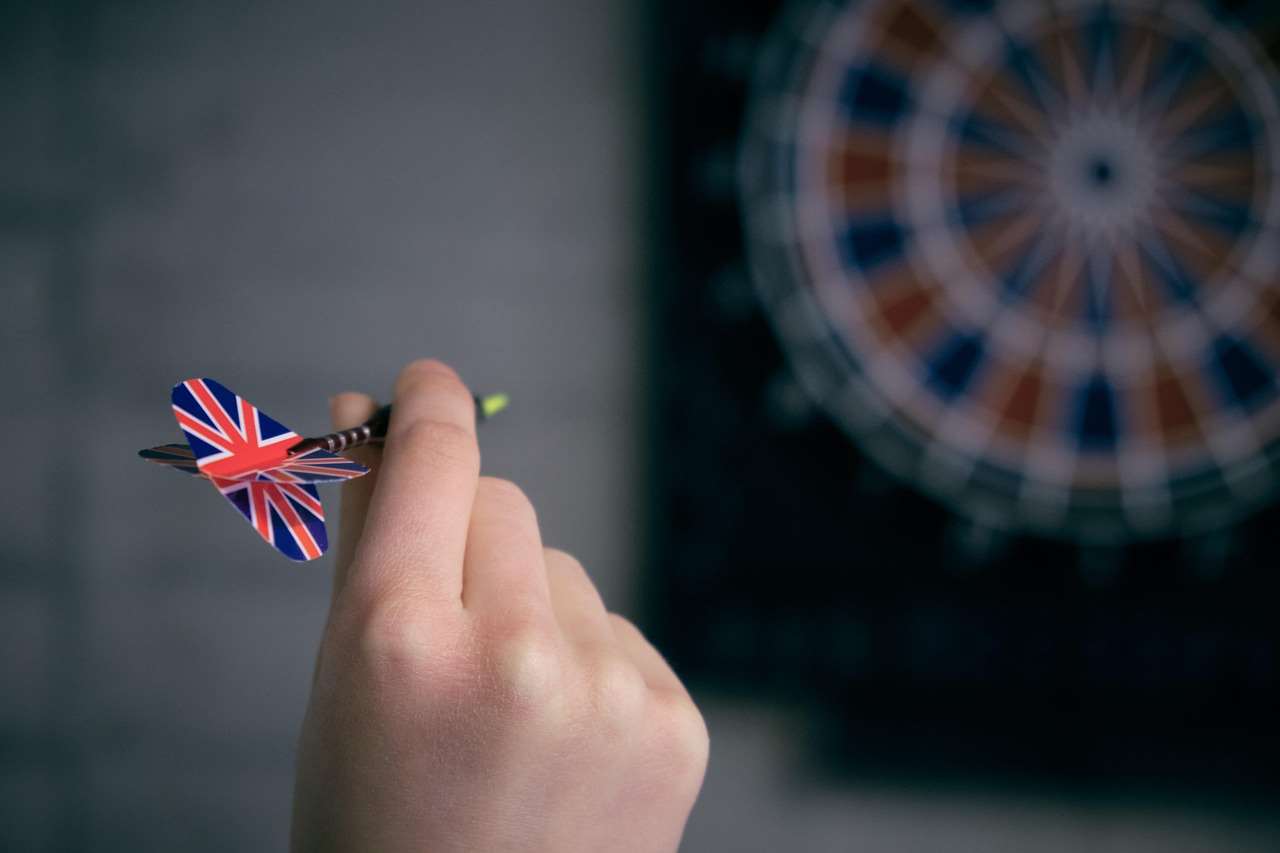De beheersen van de Cricket darts mental game: staying focused is about developing rock-solid concentration; the player who can maintain composure and focus under pressure has a significant advantage. This article explores proven strategies for mental fortitude and unwavering concentration during Cricket darts matches, equipping you with the tools to perform your best consistently.
⚠️ Still Using Pen & Paper (Of een schoolbord)?! ⚠️
Stap in de toekomst! De Dart Teller -app behandelt alle scoren, stelt kassa voor, en volgt uw statistieken automatisch. It's easier than you think!
Probeer de Smart Dart Teller -app gratis!Klaar voor een upgrade? Klik hierboven!
The Importance of Mental Fortitude in Cricket Darts
Cricket darts, unlike many other dart games, demands not only precision but also strategic thinking and resilience. One missed throw can shift momentum drastically, and a single bad leg can derail your entire match. This is where the mental game becomes paramount. The ability to bounce back from setbacks, maintain focus when your opponent is on a roll, and execute your game plan despite the pressure are all crucial components of success. Without a strong mental game, even the most skilled dart player will struggle to perform consistently.
Mental fortitude isn’t an innate gift; it’s a skill that can be developed and honed with practice. Just like your physical technique, your mental approach requires consistent attention and deliberate training. Learning to control your thoughts, manage your emotions, and stay present in the moment are all key aspects of building a winning mindset.

Strategies for Staying Focused During Cricket Darts
Here are several strategies you can implement to improve your focus and mental toughness during Cricket darts matches:
Pre-Match Preparation: Setting the Stage for Success
- Visualisatie: Before your match, spend time visualizing yourself playing well. Imagine hitting key triples, closing out numbers, and maintaining your composure under pressure. This mental rehearsal can build confidence and reduce anxiety.
- Positieve zelfpraat: Develop a repertoire of positive affirmations to use throughout the match. Replace negative thoughts with encouraging statements such as “I can do this,” “I am focused,” of “I’ve practiced this.”
- Pre-Game Routine: Establish a consistent pre-game routine that helps you get into the right mental state. This could include stretching, listening to music, or practicing specific throws.
In-Match Techniques: Maintaining Focus Under Pressure
- Deep Breathing: When you feel your focus wavering or your emotions running high, take a few deep breaths. This can help calm your nerves and bring you back to the present moment.
- Mindfulness: Practice being fully present in each moment. Focus on your grip, your stance, and your target. Avoid dwelling on past mistakes or worrying about future outcomes.
- Process-Oriented Thinking: Instead of focusing on the outcome (winning or losing), concentrate on the process of throwing each dart. Focus on executing your technique correctly and hitting your target.
- Identify and Neutralize Distractions: Recognize common distractions that can disrupt your focus, such as crowd noise, opponent behavior, or negative thoughts. Develop strategies to minimize these distractions, such as using earplugs or refocusing your attention on your breathing.

Post-Match Analysis: Learning from Experience
- Review Your Performance: After each match, take time to review your performance, both physically and mentally. Identify areas where you excelled and areas where you struggled.
- Learn from Mistakes: Don’t dwell on your mistakes, but don’t ignore them either. Analyze what went wrong and develop strategies to avoid making the same mistakes in the future.
- Celebrate Successes: Acknowledge and celebrate your successes, no matter how small. This will help build your confidence and reinforce positive habits.
Common Mental Game Challenges in Cricket Darts and How to Overcome Them
Even with the best preparation, you’re likely to encounter mental challenges during Cricket darts matches. Here are some common challenges and strategies for overcoming them:
Fear of Failure
The fear of failure can be paralyzing, leading to hesitation and poor performance. To overcome this fear, focus on the process rather than the outcome. Remind yourself that you’re there to learn and improve, not to be perfect. Embrace mistakes as opportunities for growth.
Performance Anxiety
Performance anxiety can manifest as sweaty palms, a racing heart, and difficulty concentrating. Practice relaxation techniques such as deep breathing and visualization to manage anxiety. Remember that everyone experiences nerves; the key is to learn how to control them.
Tilt
Tilt is a state of mental or emotional confusion or frustration in which a player adopts a less than optimal strategy, usually resulting in worse performance. Tilt can be triggered by a bad throw, a close loss, or an opponent’s taunts. To avoid tilt, recognize the signs of it early and take steps to calm yourself down. This could involve taking a break, talking to a coach, or simply focusing on your breathing. The ability to modify the dart game rules for children can make this even more helpful to maintain the attention of the players. Adapting darts rules for beginners can also help ease the pressure.

Distractions
Distractions can come from anywhere, from crowd noise to internal thoughts. To minimize distractions, practice focusing on your breath and your target. Develop a pre-throw routine that helps you block out external stimuli.
Specific Mental Game Drills for Cricket Darts
To further enhance your Cricket darts mental game: staying focused and develop the mental fortitude required for success, consider incorporating these specific drills into your training regimen:
- Pressure Practice: Simulate match conditions by practicing with distractions and consequences. Bijvoorbeeld, you could have a friend heckle you while you throw or require yourself to do push-ups for every missed dart.
- Concentration Training: Practice focusing your attention on a single point for extended periods of time. This can help improve your overall concentration and reduce susceptibility to distractions.
- Mental Imagery: Spend time visualizing yourself playing well and executing specific shots. This can help build confidence and improve your performance under pressure.
- Breathing Exercises: Practice deep breathing exercises to calm your nerves and improve your focus.
The Role of Positive Self-Talk
Positive self-talk is a powerful tool for managing your mental state during Cricket darts matches. By replacing negative thoughts with positive ones, you can boost your confidence, improve your focus, and enhance your performance. Instead of dwelling on missed throws, remind yourself of your past successes and your ability to bounce back. Develop a repertoire of positive affirmations that you can use throughout the match to stay motivated and focused. Consider that if you’re planning some fun dart game variations with modified rules, you need to be positive. Positive self-talk also makes the game more enjoyable.

Building Confidence Through Preparation
Confidence is a critical component of the mental game. When you’re confident in your abilities, you’re more likely to take risks, stay focused under pressure, and perform your best. One of the best ways to build confidence is through thorough preparation. This includes practicing your technique, studying your opponents, and developing a solid game plan. The Basic Darts Fundamentals for Beginners will help you master those skills needed.
The more prepared you are, the less likely you are to be surprised or overwhelmed during a match. You’ll have a clear understanding of your strengths and weaknesses, as well as your opponent’s, and you’ll be able to adapt your game plan accordingly. This sense of control can significantly boost your confidence and improve your performance.
Seeking Professional Help
If you’re struggling to manage your mental game on your own, consider seeking professional help. A sports psychologist can provide you with personalized strategies and techniques for improving your focus, managing your emotions, and building mental toughness. They can also help you identify and address any underlying issues that may be affecting your performance.
Working with a sports psychologist can be a significant investment in your darting career. They can provide you with the tools and support you need to reach your full potential.

Cricket Darts Mental Game: Staying Focused – Long Term Strategy
Building the mental fortitude needed for consistent success in Cricket darts is not a quick fix; it’s a long-term strategy. Implement the techniques discussed in this article into your regular routine. Track your progress, and be patient with yourself. Some days will be better than others, but with consistent effort, you can significantly improve your Cricket darts mental game: staying focused and your overall performance.
Remember that mental training is just as important as physical training. By dedicating time and effort to developing your mental game, you can gain a significant edge over your competition and unlock your full potential as a dart player.
Conclusie
De Cricket darts mental game: staying focused is a crucial, often overlooked, aspect of success. By mastering techniques like visualization, positive self-talk, mindfulness, and effective pre- and post-match routines, you can cultivate a mental edge that will set you apart from the competition. Embrace the journey, stay committed to your mental training, and watch your game soar. Nu, take these strategies, apply them diligently, and start dominating the dartboard! Consider how to make darts fairer with handicap rules, or even creating creative dart rules for parties and social gatherings!
Hoi, Ik ben Dieter, En ik heb Dartcounter gemaakt (Dartcounterapp.com). Mijn motivatie was geen darts -expert - helemaal tegenovergestelde! Toen ik voor het eerst begon te spelen, Ik hield van het spel, maar vond het moeilijk en afleidend om nauwkeurige scores te houden en statistieken te volgen.
Ik dacht dat ik niet de enige kon zijn die hiermee worstelde. Dus, Ik besloot om een oplossing te bouwen: een eenvoudig te gebruiken applicatie die iedereen, Ongeacht hun ervaringsniveau, zou kunnen gebruiken om moeiteloos te scoren.
Mijn doel voor Dartcounter was eenvoudig: Laat de app de nummers afhandelen - het scoren, de gemiddelden, de statistieken, Zelfs checkout suggesties - zodat spelers puur kunnen richten op hun worp en genieten van het spel. Het begon als een manier om het probleem van mijn eigen beginners op te lossen, En ik ben heel blij dat het is uitgegroeid tot een nuttig hulpmiddel voor de bredere darts -community.